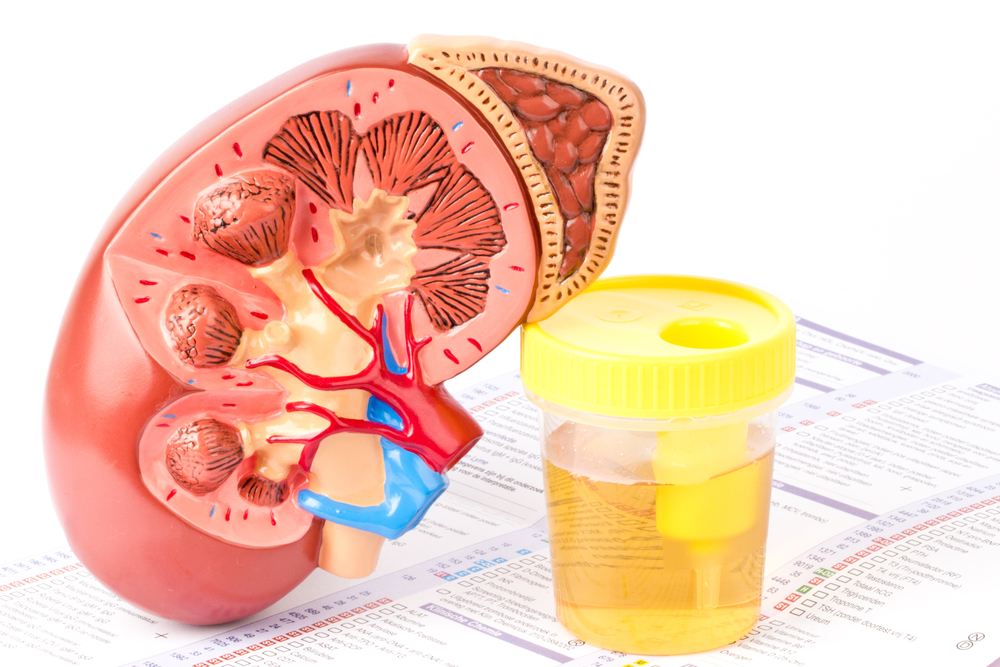Filtered Albumin Linked to Alport Syndrome Progression in Mice, Study Finds

Researchers at Washington University School of Medicine found that circulating and filtered albumin — a common protein found in the blood, made by the liver — contributes to the progression of kidney disease in people with Alport syndrome.
Details of the study, ‘‘Albumin contributes to kidney disease progression in Alport syndrome,” were published in The American Journal of Physiology – Renal Physiology.
The mechanisms leading to the deterioration of renal function in patients with chronic kidney disease are still not fully understood. Alport syndrome is one of the best investigated familial kidney diseases due to its well-established clinical presentation, genetic definition, and the extensive availability of animal studies.
Alport syndrome is caused by a lack of the structural protein called collagen- 345(IV), leading to changes in the structure and function of the kidney’s extracellular matrix network. This, in turn, causes a leakage of proteins, such as albumin.
A growing body of evidence suggests that leaked albumin could result in injury to the kidney’s basic filtration units, particularly at advanced stages of Alport syndrome. To clarify this issue, researchers examined the association between albumin and the progression of Alport syndrome by using genetically modified mice that lacked albumin in the urine, as a component of kidney disease.
The researchers found the modified mice with no albumin in the urine showed overall similar health as the control group.
Other data suggested that these mice developed high levels of a fatty molecule called hypertriglyceridemia, as well as other conditions like dyslipidemia, associated with elevated levels of lipids like triglycerides and cholesterol in the blood.
The genetically modified mice depicted lower plasma albumin concentration (half the normal amount), which led to decreased signs of kidney disease. This resulted in longer survival of these mice by 64 percent in spite of similar blood pressures and body fat triglyceride levels as the mice with kidney disease.
“We conclude that filtered albumin is injurious to kidney cells in Alport syndrome and perhaps in other proteinuric kidney diseases, including diabetic nephropathy,” the authors wrote in their study.
They said that even though they were able to show the importance of albumin in the development of Alport syndrome, they were left with many “unresolved questions that will require further investigations.”
- “The mechanism of injury induced by albumin;
- Whether albumin plays the same role in other proteinuric kidney diseases, especially diabetic nephropathy;
- Whether the role of albumin will depend on the primary cause of proteinuria;
- Whether we can explain the apparent lack of albumin toxicity in minimal change disease by its different pathogenesis compared with Alport syndrome.”
“By understanding the nature of albumin-induced injury mechanistically, we hope to be able to improve the outcome of proteinuric kidney disease by therapeutically antagonizing the harmful effects of albumin,” the authors wrote.







Leave a comment
Fill in the required fields to post. Your email address will not be published.